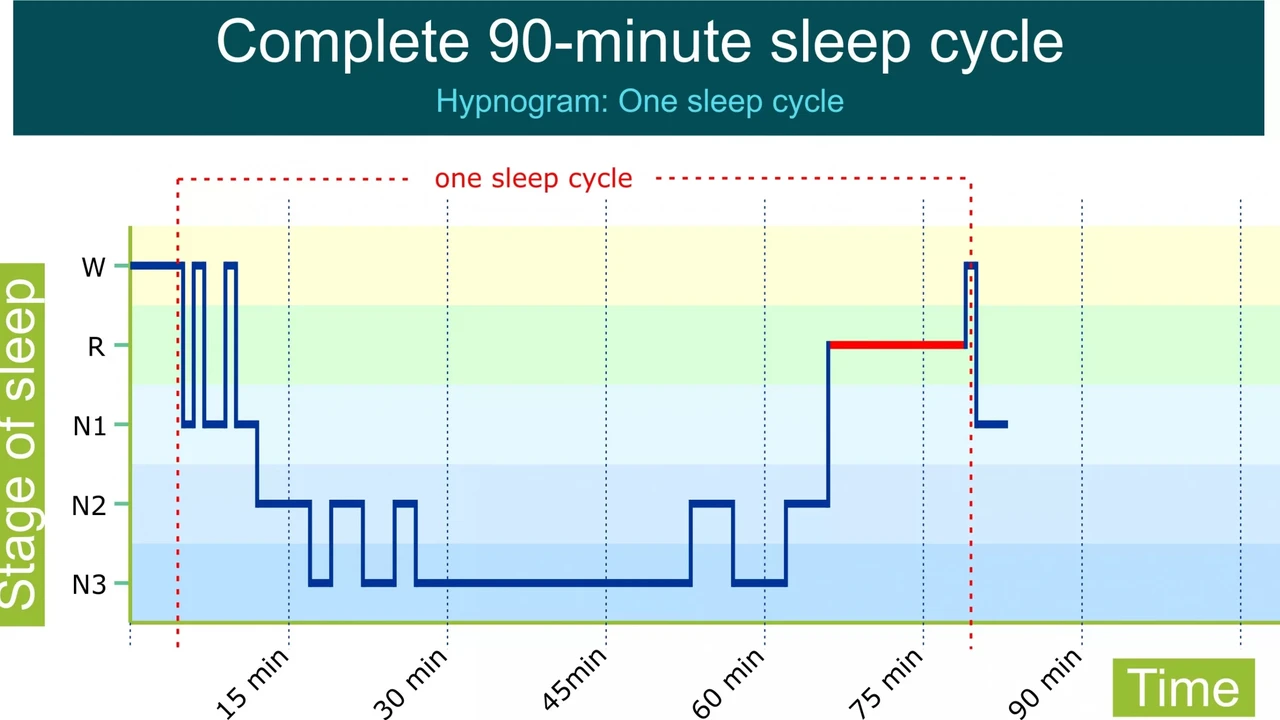Sleep Deprivation: Symptoms, Risks, and Solutions
Sample meta description.

Understanding Sleep Deprivation What Is It and Why Does It Matter
Ever feel like you're running on fumes? Like your brain is wading through molasses? Chances are, you're sleep deprived. It's not just about feeling tired; it's a condition where you consistently don't get enough sleep. And in today's fast-paced world, it's surprisingly common. We're talking about a serious lack of Zzz's, folks. Think about it – late nights working, binge-watching your favorite shows, scrolling through social media... all these things chip away at our precious sleep time. But why is sleep so crucial? Well, it's when our bodies and minds recharge. It's when our memories consolidate, our immune system strengthens, and our hormones regulate. Without enough sleep, everything starts to fall apart. So, let's dive into what sleep deprivation really looks like, the dangers it poses, and most importantly, how to fix it!
Sleep Deprivation Symptoms Recognizing the Signs of Sleep Loss
Okay, so how do you know if you're actually sleep deprived? It's not always as simple as just feeling tired. Here's a rundown of some common symptoms:
- Excessive Daytime Sleepiness: This is the big one. Feeling like you could fall asleep anywhere, anytime. Nodding off during meetings, struggling to stay awake while driving – these are major red flags.
- Difficulty Concentrating: Can't focus? Easily distracted? Sleep deprivation messes with your cognitive function, making it hard to concentrate on tasks, remember things, and make decisions.
- Irritability and Mood Swings: Short-tempered? Snappy with your loved ones? Lack of sleep can wreak havoc on your emotions, making you more prone to irritability, anxiety, and even depression.
- Impaired Judgment: Making poor decisions? Taking unnecessary risks? Sleep deprivation can cloud your judgment, leading to impulsive behavior and accidents.
- Weakened Immune System: Catching every bug that goes around? Sleep deprivation weakens your immune system, making you more susceptible to illness.
- Increased Appetite and Weight Gain: Craving sugary and fatty foods? Sleep deprivation disrupts hormones that regulate appetite, leading to increased cravings and potential weight gain.
- Physical Symptoms: Headaches, dizziness, blurred vision, and even tremors can be symptoms of sleep deprivation.
If you're experiencing several of these symptoms, it's a good indication that you're not getting enough sleep.
Sleep Deprivation Risks Health Consequences of Chronic Sleep Loss
Sleep deprivation isn't just a minor inconvenience; it can have serious long-term health consequences. Here's a look at some of the risks:
- Increased Risk of Chronic Diseases: Studies have linked chronic sleep deprivation to an increased risk of developing conditions like heart disease, stroke, diabetes, and certain types of cancer.
- Mental Health Problems: Sleep deprivation can exacerbate existing mental health conditions and increase the risk of developing new ones, such as anxiety, depression, and bipolar disorder.
- Accidents and Injuries: Drowsy driving is a major cause of accidents. Sleep deprivation also impairs coordination and reaction time, increasing the risk of falls and other injuries.
- Reduced Productivity and Performance: Sleep deprivation affects cognitive function, leading to decreased productivity at work and school. It can also impair athletic performance.
- Premature Aging: Chronic sleep deprivation can accelerate the aging process, leading to wrinkles, fine lines, and other signs of premature aging.
The bottom line? Prioritizing sleep is crucial for your overall health and well-being. Don't let sleep deprivation become a chronic problem.
Sleep Deprivation Solutions Strategies for Improving Sleep Quality
Alright, so you know you're sleep deprived. Now what? Fortunately, there are many things you can do to improve your sleep quality and get back on track. Here are some effective strategies:
- Establish a Regular Sleep Schedule: Go to bed and wake up at the same time every day, even on weekends, to regulate your body's natural sleep-wake cycle.
- Create a Relaxing Bedtime Routine: Wind down before bed with relaxing activities like reading, taking a warm bath, or listening to calming music.
- Optimize Your Sleep Environment: Make sure your bedroom is dark, quiet, and cool. Use blackout curtains, earplugs, or a white noise machine if necessary.
- Limit Screen Time Before Bed: The blue light emitted from electronic devices can interfere with sleep. Avoid using phones, tablets, and computers for at least an hour before bed.
- Avoid Caffeine and Alcohol Before Bed: These substances can disrupt sleep patterns. Limit your intake of caffeine and alcohol, especially in the evening.
- Exercise Regularly: Regular physical activity can improve sleep quality, but avoid exercising too close to bedtime.
- Manage Stress: Stress can interfere with sleep. Practice relaxation techniques like meditation, yoga, or deep breathing exercises to manage stress.
- Consider Cognitive Behavioral Therapy for Insomnia (CBT-I): CBT-I is a type of therapy that can help you identify and change negative thoughts and behaviors that are contributing to your insomnia.
Experiment with different strategies to find what works best for you. It may take some time, but with consistency and effort, you can improve your sleep quality and overcome sleep deprivation.
Product Recommendations for Better Sleep Enhancing Your Sleep Environment
Let's talk about some products that can help you create the perfect sleep sanctuary. These aren't magic bullets, but they can be valuable tools in your quest for better sleep.
Weighted Blankets for Anxiety and Relaxation
What They Are: Weighted blankets are blankets filled with small beads or pellets that provide gentle pressure, mimicking the feeling of being hugged. How They Help: This "deep pressure stimulation" can help calm the nervous system, reduce anxiety, and promote relaxation, making it easier to fall asleep and stay asleep. Product Recommendations:
- YnM Weighted Blanket: A popular and affordable option with various weights and sizes. Around $50-$80 on Amazon.
- Gravity Blanket: A premium option with a luxurious feel and even weight distribution. Around $250 on Gravityblankets.com.
Comparison: The YnM is a great entry-level blanket, while the Gravity Blanket offers a more refined experience. Consider your budget and desired level of luxury.
White Noise Machines for Sound Masking and Sleep Enhancement
What They Are: White noise machines generate a consistent, soothing sound that masks distracting noises, like traffic, snoring, or barking dogs. How They Help: By creating a more peaceful sound environment, white noise machines can help you fall asleep faster, stay asleep longer, and improve the quality of your sleep. Product Recommendations:
- LectroFan High Fidelity White Noise Sound Machine: A top-rated machine with a wide variety of sounds and adjustable volume. Around $50 on Amazon.
- Hatch Baby Rest Sound Machine, Night Light, and Time-to-Rise: A versatile option that also functions as a night light and time-to-rise clock for children. Around $70 on Hatch.co.
Comparison: The LectroFan is a dedicated sound machine, while the Hatch Baby Rest is a multi-functional device designed for families. Choose based on your specific needs.
Sleep Masks for Light Blocking and Deeper Rest
What They Are: Sleep masks are designed to block out light, creating a darker sleep environment. How They Help: Darkness is essential for the production of melatonin, a hormone that regulates sleep. Sleep masks can help you fall asleep faster and achieve deeper, more restful sleep. Product Recommendations:
- MZOO Sleep Eye Mask: A contoured mask that provides comfortable and effective light blocking. Around $20 on Amazon.
- Slip Silk Sleep Mask: A luxurious silk mask that is gentle on the skin and hair. Around $50 on Slip.com.
Comparison: The MZOO is a budget-friendly option, while the Slip Silk Sleep Mask offers a more luxurious and comfortable experience. Consider your skin sensitivity and budget.
Smart Mattresses and Sleep Trackers for Personalized Sleep Insights
What They Are: Smart mattresses and sleep trackers use sensors to monitor your sleep patterns, providing data on things like sleep duration, sleep stages, heart rate, and breathing. How They Help: By tracking your sleep, you can gain insights into your sleep habits and identify potential problems. This information can help you make informed decisions about how to improve your sleep. Product Recommendations:
- Eight Sleep Pod 3: A high-tech mattress with temperature regulation and sleep tracking capabilities. Starting at $3,095 on EightSleep.com.
- Fitbit Charge 5: A wearable fitness tracker that also tracks sleep duration, sleep stages, and heart rate. Around $150 on Fitbit.com.
Comparison: The Eight Sleep Pod 3 is a complete sleep solution, while the Fitbit Charge 5 is a more affordable and versatile option for tracking your sleep and fitness. The price difference is significant, so assess your needs and budget carefully.
Diffusers and Essential Oils for Aromatherapy and Relaxation
What They Are: Diffusers release essential oils into the air, creating a calming and relaxing atmosphere. How They Help: Certain essential oils, like lavender, chamomile, and sandalwood, have been shown to promote relaxation and improve sleep quality. Product Recommendations:
- Vitruvi Stone Diffuser: A stylish and elegant diffuser that blends seamlessly into any decor. Around $120 on Vitruvi.com.
- URPOWER Essential Oil Diffuser: An affordable and portable diffuser that is perfect for small spaces. Around $20 on Amazon.
Comparison: The Vitruvi is a more aesthetically pleasing option, while the URPOWER is a more budget-friendly and portable choice. Consider your personal style and the size of your room.
Building a Better Sleep Routine Creating a Sustainable Sleep Plan
Improving sleep is a marathon, not a sprint. It takes time and effort to develop healthy sleep habits. Be patient with yourself and don't get discouraged if you don't see results overnight. Consistency is key. Building a solid sleep routine is crucial for ensuring better sleep quality in the long run. This could involve setting a fixed bedtime and wake-up time, even on weekends, to regulate your body's natural sleep-wake cycle. Incorporating relaxing activities into your bedtime routine, such as reading or taking a warm bath, can also help signal to your body that it's time to sleep. Remember to stay consistent with your routine, even when life gets busy, to maintain its effectiveness.
Remember, everyone is different. What works for one person may not work for another. Experiment with different strategies and find what works best for you. And if you're still struggling to get a good night's sleep, talk to your doctor. They can help you identify any underlying medical conditions that may be contributing to your sleep problems.
:max_bytes(150000):strip_icc()/277019-baked-pork-chops-with-cream-of-mushroom-soup-DDMFS-beauty-4x3-BG-7505-5762b731cf30447d9cbbbbbf387beafa.jpg)



: Causes and Treatments.webp)

: Understanding and Managing.webp)
